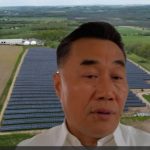COP 23 : A half victory for developing countries
The Un Climate Change negotiations ended at nearly 7 o’clock this morning with a song from the Fijians. Started two weeks ago, these negotiations make time to find any compromise between developed and developing countries. As usual. The story.
By Houmi Ahamed-Mikidache
The implementation of the Paris Agreement have many issues: adaptation and mitigation through the NDCs, loss and damage, adaptation, adaptation fund, finance, transfer of technology, transparency, support and capacity building. Most of all these elements have been taken separately through a facilitative dialogue launched during COP 21 in Paris and pursued in Marrakech during COP 22, then in Bonn with the Fiji presidency, and the Talanoa Dialogue, a conversation between north and south representatives to achieve the long term pathway to 1,5°Celsius.
The Talanoa Dialogue
“ We have been doing the job that we were given to do: advance the implementation guidelines of the Paris Agreement, and prepare for more ambitions actions for the Talanoa dialogue in 2018,” said the Prime minister of Fiji and president of COP 23, Frank Bainimarama.
For the Prime Minister of Fiji, there has been a positive momentum in various areas in COP 23 : the global community has embraced the Fiji concept of grand coalition for greater ambition linking national governments, states and cities, civil society, the private sector and all women around the world.“ We have launched a global partnership to provide millions of climate vulnerable people an affordable access to insurance,” said the president of COP 23. For him, this COP has put people first. It has connected the people who are not experts on climate change to the UN Climate negotiations. According to him, putting people first showed to the world that these people are facing climate change in their daily lives.
What has been achieved?
Saturday, 2.40 Am, the African negotiators left again the negotiations rooms and were happy: “ We got it Adaptation Fund and Article 9.5,” said Ambassador Nafo from Mali and head of the African group of negotiators. The decisions adopted in Bonn explained that there will be modalities for the accounting of financial resources provided and mobilized through public intervention in accordance to the article 9 of the Paris Agreement. The Article 9.5 of the Paris Agreement has mentionned that the Developed country Parties shall biennially communicate indicative quantitative and qualitative information related to finance of both mitigation and adaptation.
Back and Forth
Last night was marked by Back and Forth from all the delegates. And it continued earlier this morning. At 3am, the Republic of Ecuador on behalf of the G77+ China group ( 134 countries) raised again concerns on the pre-2020 commitments to be honoured by developed countries. The delegates left the New York Plenary ( Name of the Plenary in Bonn) and at around 5am, the Democratic Republic of Congo on behalf the 52 countries of the Coalition of Rain Forest raised another concern.
“ We lost a good opportunity to conclude a win for REDD+ and a win for Fiji Presidency, because the high level consultation did not start earlier”, said Tosi Mpanu Mpanu, who is also head of the delegation of the Democratic Republic of Congo in the Congo Basin, the second largest tropical forest in the world after Amazonia. To him, forest sector cannot been ignored as it contributes to the reduction of Greenhouse Gas emissions. He also expressed his disappointment on many issues, especially related to the effort of the Coalition for Rain Alliance Forest group to mitigate and integrate the non state actors and raised concerns on the difficulties related to procedures during the two weeks negotiations.
The Coalition for Rain Alliance Forest also reaffirmed its support to the statement on the pre-2020 commitment of the G77 and China. This has been also emphasized by the African group of Negotiators. “On pre-2020, the African Group is disappointed that there seems to be little appetite to accelerate pre-2020 action, as exemplified by the fact the Doha Amendment has not yet come into force and means of implementation to developing countries is declining,” explained the Ambassador Nafo. Finally, at nearly 7 o’clock AM today, after all the delegates from AOSIS, Australia, European Union, LDCs, and, Iran, Mexico, Peru, the civil society gave their statements, the COP presidency affirmed that this UN climate Conference was a success. But For the Civil society outside the plenary, there is an imbalance between the requirements asked to the developing countries and what the developed countries especially the European Union are doing to reduce the greenhouse gas emissions. The European Union hasn’t ratified yet the Doha Amendment. But the prime minister of Fiji gave positive feedbacks.
Perspective
“ We all leave Bonn with some notable achievements: our ocean pathway, the historical agreement on agriculture, and action plan on gender, the decisions that benefit local communities and indigenous population, we have also secured more funding for climate adaptation, and I am pleased to know that we are taken the important next step to ensure that the adaptation fund shall serve the Paris Agreement,” indicated Mr Bainimarama.
Another issue disscussed and resolved was Loss and damage. ” A program of 5 years has been established, with a one year forum, a dialogue with experts on finance and support and and a working group will be establish on the question of migration,” said Ambassador Nafo.
However to the African negotiators, the question of the 100 billion US dollars per year by 2020 for the National Determined Contributions for developing countries are far to reach, even if it has been raised during a dialogue on the role of climate finance during this COP and shoud be disscussed deeply in 2018. “ It ( the 100 billionUSD per year by 2020) will remain a pipe dream,” said a negotiator from Africa who prefers anonymity.




